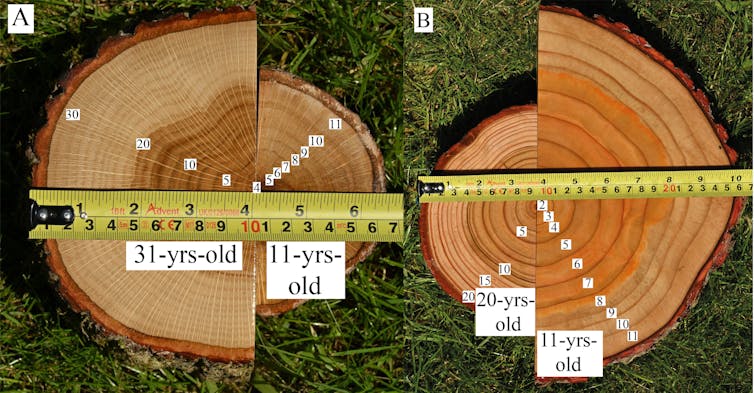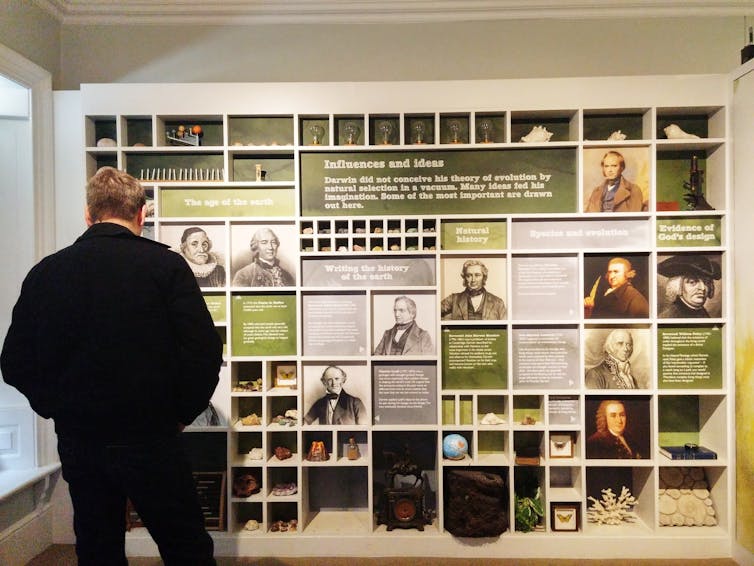A 150-year-old note from Charles Darwin is inspiring a change in the way forests are planted
More than 150 years ago Victorian biologist Charles Darwin made a powerful observation: that a mixture of species planted together often grow more strongly than species planted individually.
It has taken a century and a half — ironically about as long as it can take to grow an oak to harvest — and a climate crisis to make policymakers and land owners take Darwin’s idea seriously and apply it to trees.
There is no human technology that can compete with forests for take-up of atmospheric carbon dioxide, and its storage. Darwin’s idea of growing lots of different plants together to increase the overall yield is now being explored by leading academics, who research forests and climate change.
Scientists and policymakers from Australia, Canada, Germany, Italy, Nigeria, Pakistan, Sweden, Switzerland, the UK and the US came together recently to discuss if Darwin’s idea provides a way to plant new forests that absorb and store carbon securely.
Why plant more forests
Planting more forests is a potent tool for mitigating the climate crisis, but forests are like complex machines with millions of parts. Tree planting can cause ecological damage when carried out poorly, particularly if there is no commitment to diversity of planting. Following Darwin’s thinking, there is growing awareness that the best, healthiest forests are ones with the greatest variety of trees - and trees of various ages.
Forests following this model promise to grow two to fourfold more strongly, maximising carbon capture while also maximising resilience to disease outbreaks, rapid climate change and extreme weather.

In mixed forests, each species accesses different sources of nutrients from the others, leading to higher yields overall. And those thicker stems are made mostly of carbon.
Mixed forests are also often more resilient to disease by diluting populations of pests and pathogens, organisms that cause disease.
Darwin’s prescient observation is tucked away in chapter four of his 1859 famous book On the Origin of the Species. Studies of this “Darwin effect” has spawned a vast ecological literature. Yet it is still so outside of the mainstream thinking on forestry that, until now, little major funding has been available to prompt use of this technique.
Darwin also famously described evolution by natural selection, a process by which genes evolve to be fit for their environment. Unfortunately for the planet, human-induced environmental change outstrips the evolution of genes for larger, slower reproducing, organisms, like trees.

Modern gene-editing techniques – direct DNA surgery – can help speed things up once careful laboratory work identifies the key genes. But only evolution of human practice – that is, changing what we do – is fast and far-reaching enough to rebalance the carbon cycle and bring us back within safe planetary limits.
Healthier trees capture more carbon
At our meeting we discussed a study of Norbury Park estate in central England, which describes how — using the Darwin effect and other climate-sensitive measures — the estate now captures over 5,000 tonnes of carbon dioxide per year, making it quite possibly the most carbon-negative land in the UK. Such impressive statistics don’t happen by accident or by sticking some trees in the ground and hoping; care and ecological nous is needed.
Trees of different ages also continuously provide harvestable timber and so steady jobs, in stark contrast to the other methods of forestry, where large areas are felled and cleared at the same time.
The UK government, like other administrations, has laid down requirements for responsible large-scale tree planting. These requirements continue to be revised and improved. There are still vital questions about which trees we should plant, where we should plant them, and what to do with them once they’ve grown.
It has been said that it is impossible to plant a forest, but it should certainly be possible to design a plantation that will blossom into a forest for future generations. We need forests to be a practical, dependable, and just response to our climate and biodiversity crises, and Darwin has shown us the way.
Rob MacKenzie, Professor of Atmospheric Science, University of Birmingham and Christine Foyer, Professor of Plant Sciences, University of Birmingham
This article is republished from The Conversation under a Creative Commons license. Read the original article.
